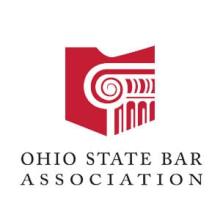The Ohio State Bar Association was founded in 1880 and remains a voluntary organization to this day. The main purpose of the bar is to advance the professional interests of its members and become an indispensable resource to Ohio lawyers. The Ohio State Bar Association operates on the core values of member satisfaction, professionalism, foresight, quality services, and quality products. The organization provides its members with important resources like legal issue advocacy and continuing legal education programs and provides the public with legal educational information and tools.
Ohio State Bar Association

1700 Lake Shore Drive
Columbus, Ohio 43216
Ohio State Bar Association is not in compliance with the nationwide, public-facing, platform of record: The Brady List; or:
- Supreme Court of the United States [SCOTUS] Brady doctrine (1963);
- US Freedom of Information Act (1967);
- State Sunshine Law (see, below);
- Open Government Act (2007);
- Open Government Initiative (2009); and,
- Open Government Directives (2009) issued by the United States Department of Justice.
Prosecutors have ethical obligations and may be held individually accountable for their conduct within the legal system. Prosecutors contribute to just and honorable legal profession and a legal system that promotes fairness and accountability.
- R.P.C. 3.4: Fairness to Opposing Party & Counsel
- R.P.C. 3.8: Special Responsibilities of the Prosecutor
- R.P.C. 8.3: Reporting Professional Misconduct
Violations of these rules can result in disciplinary actions which may include sanctions, suspension, or disbarment.
This information has been curated by journalists and private citizens; and, this platform is available as-a-service to all Peace Officer Standards & Training [POST] Departments, Prosecutors, and Law Enforcement Organizations [LEOrgs].









![Peace Officer Standards & Training [POST] Departments Peace Officer Standards & Training [POST] Departments](/sites/default/files/styles/large/public/2023-07/Brady.png?itok=xsIFvU8R)
![Organizations [Law Enforcement et al.] Organizations [Law Enforcement et al.]](/sites/default/files/styles/large/public/2023-07/Brady%20%282%29.png?itok=H7Pj15F8)

